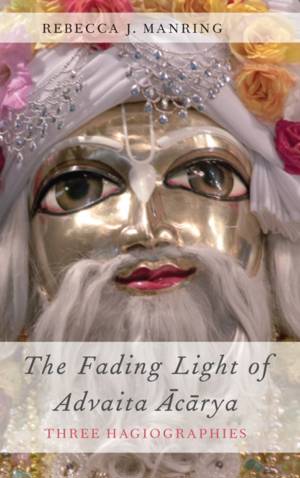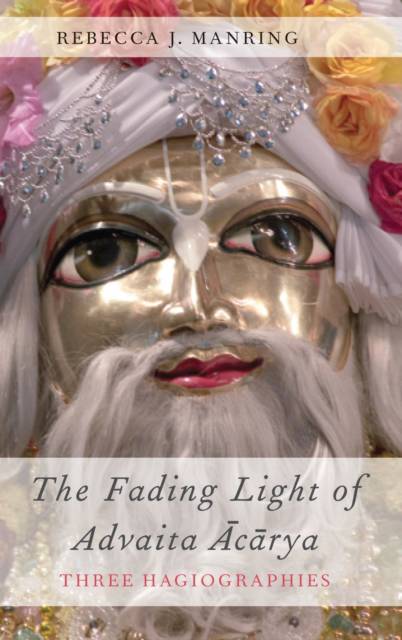
- Afhalen na 1 uur in een winkel met voorraad
- Gratis thuislevering in België vanaf € 30
- Ruim aanbod met 7 miljoen producten
- Afhalen na 1 uur in een winkel met voorraad
- Gratis thuislevering in België vanaf € 30
- Ruim aanbod met 7 miljoen producten
Zoeken
The Fading Light of Advaita Acarya
Three Hagiographies
Rebecca J. (Associate Professor of India Studies and Religious S
€ 97,95
+ 195 punten
Omschrijving
Rebecca J. Manring offers a hagiographical treatment of Advaita Acarya, a fifteenth century leader in a new devotional school of Vaisnavism. She uses the Bengali material as a case study of how to read and understand hagiographical literature.
Specificaties
Betrokkenen
- Auteur(s):
- Uitgeverij:
Inhoud
- Aantal bladzijden:
- 312
- Reeks:
Eigenschappen
- Productcode (EAN):
- 9780199736461
- Verschijningsdatum:
- 19/01/2012
- Uitvoering:
- Hardcover
- Afmetingen:
- 236 mm x 163 mm
- Gewicht:
- 567 g

Alleen bij Standaard Boekhandel
+ 195 punten op je klantenkaart van Standaard Boekhandel
Beoordelingen
We publiceren alleen reviews die voldoen aan de voorwaarden voor reviews. Bekijk onze voorwaarden voor reviews.











